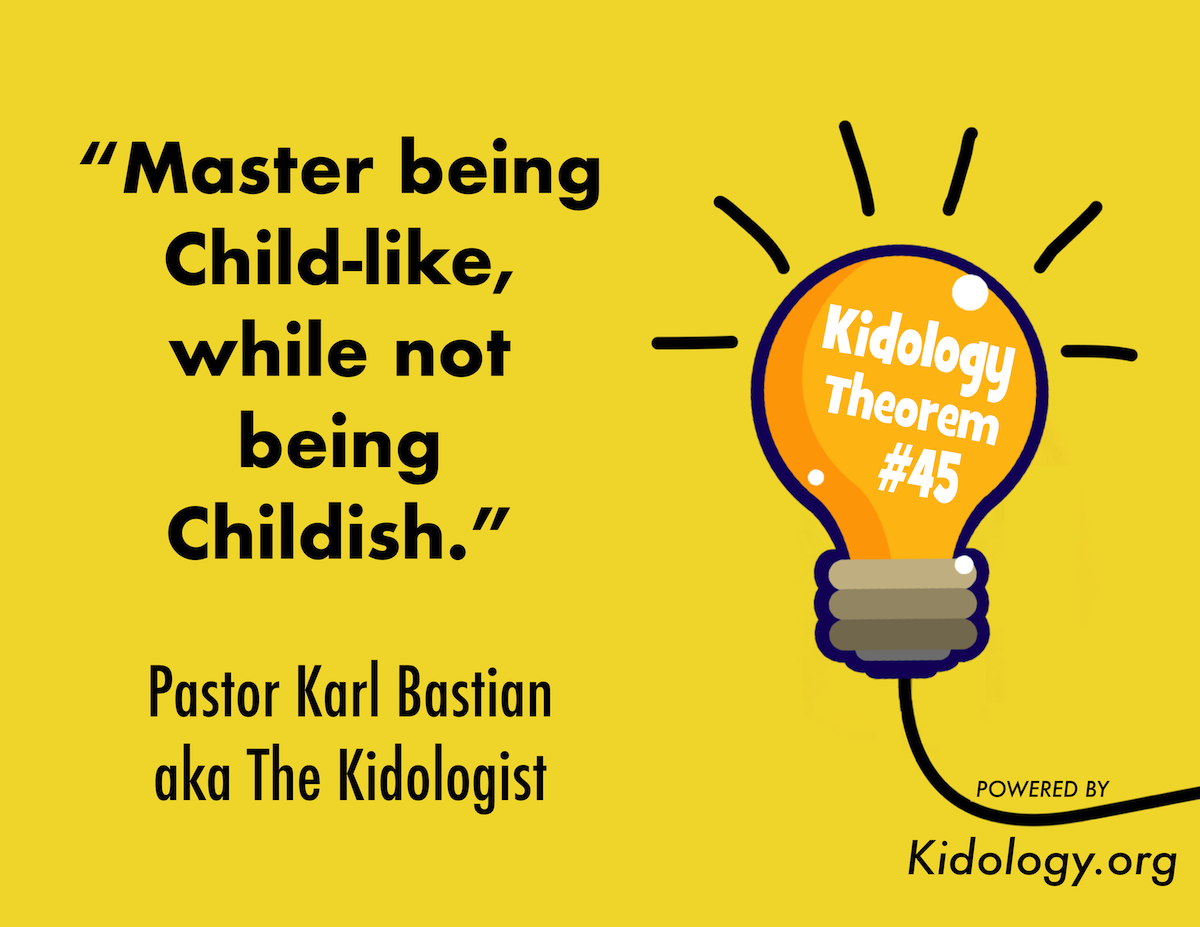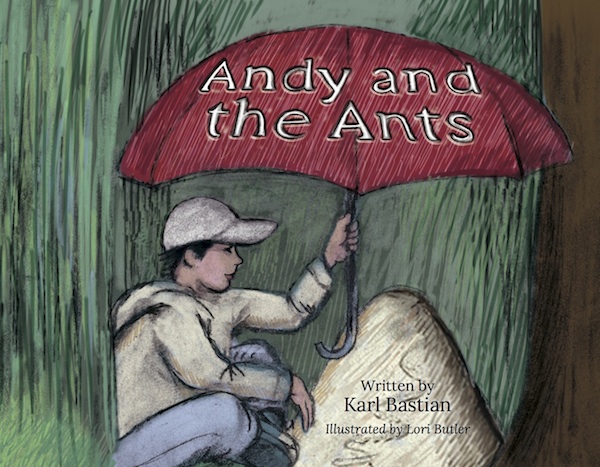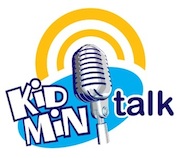There are so many things we can learn from kids. While growing up, adults tend to leave behind many traits of children that they would be wise to embrace. We can’t help growing older, but we can help growing up. Keeping a childlike heart and approach to life is not only healthy but also the secret to effective relational ministry.
But when do we take it too far? Unfortunately, becoming more like kids can have a negative effect on adult relationships if we aren’t wise in how far we go to be more like children. Here are some things I have learned to help keep the balance and help prevent childlikeness from appearing as immaturity.
Explain Your Philosophy of Ministry Every Chance You Get.
Every chance I get, both in large groups and in one-on-one conversations, I explain why I am immersed in the world of children. If an adult comments on my Minecraft t-shirt, I explain, “Kids today love this game! By joining them in this interest I am able to build relationships and even make spiritual applications from Minecraft to the Christian life.” I’ll often say, “Don’t be fooled by all the fun and silliness you see. I am serious about reaching kids for Jesus!” I can’t even count the number of times adults have expressed when they “get it” and are so appreciative for the extra effort I put into reaching their kids.
Don’t Neglect Adult Relationships.
No doubt, the kids are more fun – but don’t neglect adult relationships. If you gravitate to the children at all church events, you’ll soon appear to be just another kid. Spend some time with the children, but not at the expense of mingling and chatting with your peers! Be sure to attend men’s or women’s ministry events, join a small group, take adults out for coffee, and be engaged in adult fellowship. Let your peers see the other side of you. If they only ever see you with your yo-yo or puppet, or hamming it up with the kids, you’ll be strengthening your connection with the kids while weakening your connection with the adults. You need both in ministry.
Model Responsibility and Safety.
If you are going to connect with kids, there are going to be times that you are going to push the envelope past what most adults would do. You’ll have to. You may be dressed up in a costume, using a puppet, or otherwise being silly with the kids – but know when enough is enough. If you start to be unsafe or bend the rules, your fellow adults will start to think YOU need supervision, when you are supposed to BE the supervision. If you make adults nervous, you may be going too far. You want to connect with kids, but you need to remain an authority that they respect. It is perfectly appropriate to say to the kids, “You know I like to have fun, but I need your immediate cooperation when I give instructions, otherwise I won’t be able to be so fun.” It is also effective to say, “Hey, don’t get me in trouble with the grown-ups.” This is a subtle but effective way of saying, “I’m one of you – but I need the respect of the other adults, too.”
Put Your Toys Away.
Lastly, never forget that in life and in ministry, perception is reality. We often use toys to connect with kids. Technically, as a cross-cultural minister to kids, I call them “artifacts from the world of kids.” They not only make for great object lessons, but also demonstrate a common interest with children. There is no effective children’s ministry that doesn’t include toys. However, even kids have to learn when to put their toys away. If you are playing with toys when there are no kids around – you might be seen as childish rather than childlike. Even as you decorate your office to relate to kids, make sure an adult that comes in can relate as well. As in all things, balance is the key.
The Best Teachers are Childlike. The Best Leaders are Adult-like.
It is no secret – the best teachers are those who can relate to kids from within the context of their world and culture. However, as passionate as we are about kids, we can’t neglect the adults in our ministry. Teaching and leading are different, and each requires different skills. We are childlike in order to reach and teach kids, but we need to remain adults in order to lead. Parents and volunteers are adults with whom we need to relate to as adults. It is also adults who set ministry budgets and may sign your paycheck, so it is wise to make every effort to relate as well with them as you do with the kids! Relational ministry is the key phrase, but we must be sure we aren’t just being like kids to reach kids, but also like adults to reach them as well. The same apostle who said, “I have become all things” to reach the lost, also said, “When I became a man I put away childish things” (I Cor. 13:11). Somewhere in the middle, you can find that place where you are reaching kids while building the support of the adults in your ministry, too!
For more Kidology Theorems, visit the Kidology Theorems Zone on Kidology.









